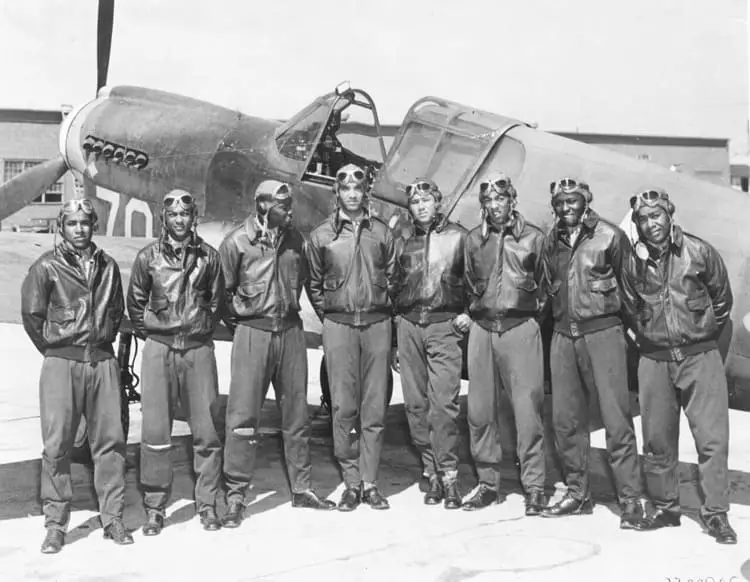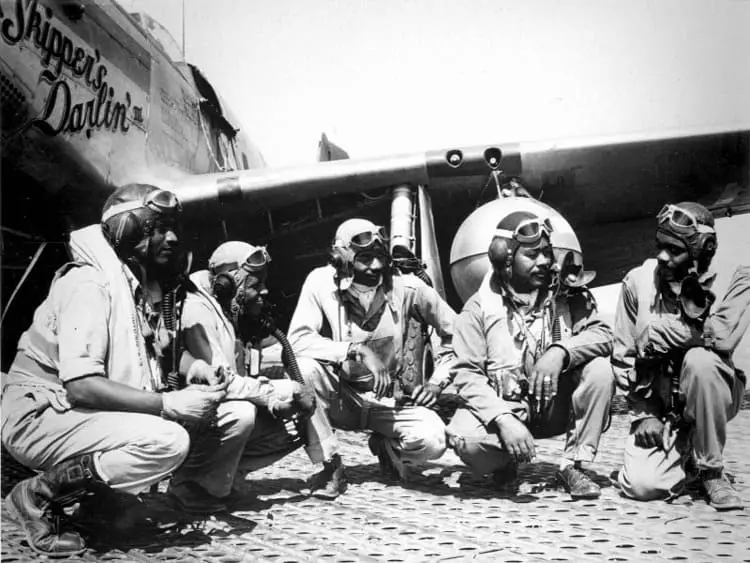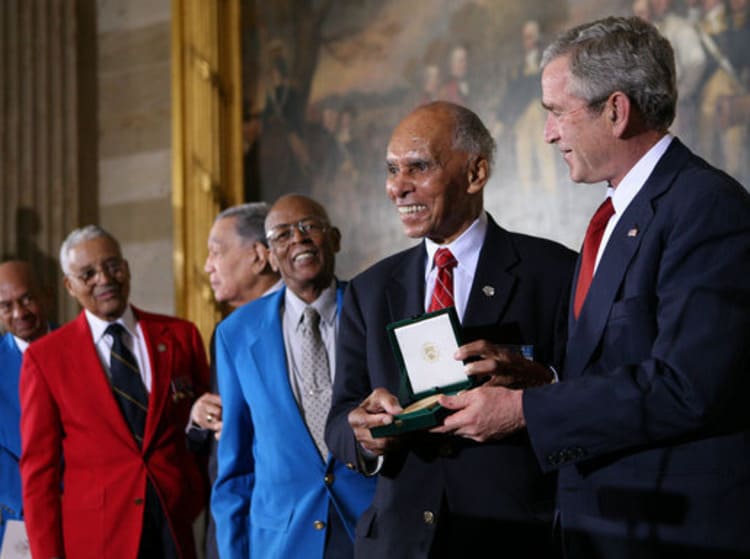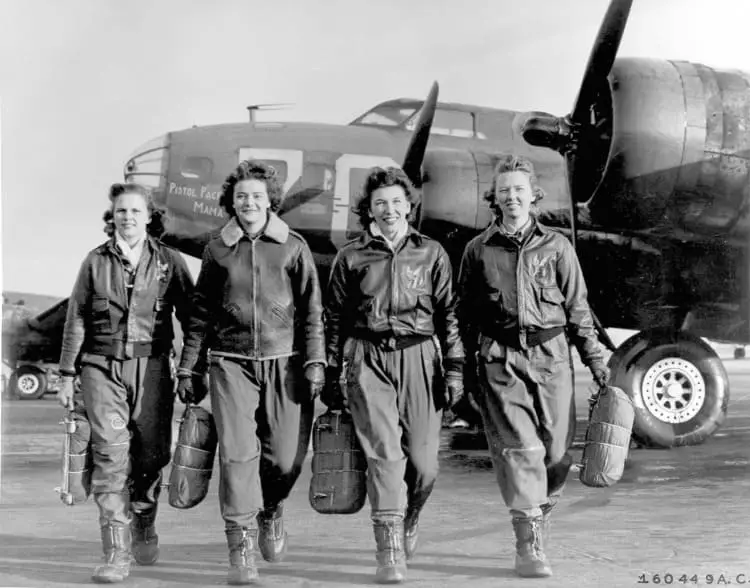
The U.S. Air Force has decided to continue teaching new recruits about the Tuskegee Airmen, the legendary first Black pilots in U.S. military history, despite a government-wide crackdown on diversity, equity, and inclusion (DEI) programs under President Donald Trump.
This decision follows a review of military training materials to ensure compliance with Trump’s DEI ban in federal agencies.
A Controversial Crackdown on DEI Programs
Since taking office, Trump has made it clear that DEI initiatives have no place in the federal government, ordering an immediate review and removal of DEI-related content.
His administration argues that these programs, which aim to promote inclusivity and prevent discrimination, are themselves discriminatory because they consider factors like race, gender, and sexual identity.
As part of this push, military officials were tasked with reviewing educational materials to ensure that no DEI-focused content remained in training programs.
This review led to the temporary removal of some historical materials, including videos and lessons about the Tuskegee Airmen and Women Airforce Service Pilots (WASPs), who played crucial roles in World War II.
The Tuskegee Airmen: Breaking Barriers in the Military

Pilots of the 332nd Fighter Group at Ramitelli Airfield, Italy; from left to right, Lt. Dempsey W. Morgan, Lt. Carroll S. Woods, Lt. Robert H. Nelson Jr., Captain Andrew D. Turner, and Lt. Clarence P. Lester
The Tuskegee Airmen were a group of about 1,000 Black pilots trained at a segregated air base in Alabama between 1941 and 1946.
During World War II, they flew hundreds of dangerous missions, escorting bombers over Europe and proving their exceptional skill and bravery. Their success helped pave the way for the eventual desegregation of the U.S. military in 1948.
Despite facing racism and discrimination at home, these pilots earned numerous awards and decorations for their service.

Their contributions are an important part of U.S. military history, demonstrating the power of perseverance and the importance of fighting for equality.
In recognition of their service, nearly 300 surviving Tuskegee Airmen were awarded the Congressional Gold Medal on March 29, 2007, in Washington, D.C., by President George W. Bush. Additionally, the Tuskegee Airmen received numerous other prestigious awards, including:
- The Legion of Merit
- The Silver Star
- 8 Purple Hearts
- 14 Bronze Stars
- 150 Distinguished Flying Crosses
Their legacy has also been honored in popular culture through films like The Tuskegee Airmen (1995, HBO) and Red Tails (2012, Lucasfilm), as well as brief appearances in Apple TV series Masters of the Air (2024)
The Public Reacts and Lessons Are Restored
When news broke that lessons about the Tuskegee Airmen had been temporarily removed from Air Force training, many people were upset.
Lawmakers and the public saw this as an unnecessary result of the broader DEI crackdown. One of the loudest voices against this decision was Alabama Senator Katie Britt, who demanded that the lessons be brought back immediately.
Defense Secretary Pete Hegseth quickly responded, assuring everyone that the decision would be reversed. He ordered the immediate return of lessons about the Tuskegee Airmen and WASPs.
Air Force training commander Lt. Gen. Brian S. Robinson confirmed that the updated training, focusing on the proven bravery and contributions of these pilots in World War II and beyond, would resume on January 27.
Women Airforce Service Pilots: The Forgotten Heroes

The Women Airforce Service Pilots (WASPs) were another groundbreaking group whose history was at risk of being sidelined.
These women played a critical role during World War II by transporting aircraft from factories to military bases, ensuring that male pilots were available for combat missions.
Although they were not granted full military status at the time, their contributions were later recognized, and in 2009, they were awarded the Congressional Gold Medal. In 2016, they also won the right to be buried in Arlington National Cemetery, cementing their place in military history.
Keeping the history of the WASPs in military training ensures that their sacrifices and contributions are not forgotten.
The Air Force’s decision to continue teaching about them reaffirms their importance in shaping the modern military.
DEI Debate
Trump’s move to eliminate DEI programs has ignited a national debate.
One side believes that true equality comes from treating everyone the same, focusing only on individual skills and hard work. They argue that DEI programs divide people by race and gender instead of bringing them together.
The other side sees things differently. They point out that for a long time, certain groups—especially Black Americans, women, and other minorities—were held back by discrimination and unequal opportunities.
They believe that fairness isn’t just about treating everyone the same today but also about fixing the lingering effects of past injustices.
DEI programs, they argue, help level the playing field by acknowledging these historical challenges and making sure everyone gets a fair shot.
This debate is really about how to create a society where opportunities are truly equal.
Should we focus on pure merit, assuming the past no longer affects the present?
Or should we take history into account and make adjustments to correct for past discrimination?
There are strong opinions on both sides, and the answer will shape policies, workplaces, and military training for years to come.
The Military’s Balancing Act
For the U.S. military, balancing historical education with shifting political directives is a challenge.
The decision to keep lessons on the Tuskegee Airmen and WASPs reflects a recognition that these stories are fundamental to American military history, not just part of DEI programs.
The Air Force has clarified that these lessons are not being presented as diversity training but as documented history.
By doing so, they ensure that the legacy of these trailblazers is preserved without directly conflicting with the administration’s policies.
What’s Next?
While the immediate crisis of removing lessons about the Tuskegee Airmen and WASPs has been averted, the larger battle over DEI programs in the federal government is far from over.
Trump has already ordered federal employees to report any attempts to “disguise” DEI initiatives within their agencies, warning of consequences for those who do not comply.
At the same time, major private companies like Meta and Amazon have started scaling back their DEI programs, signaling a broader shift away from corporate diversity initiatives as well.
Despite these political headwinds, the commitment to teaching about the Tuskegee Airmen and WASPs remains strong within the military.
As new generations of Air Force recruits learn about these heroes, their stories will continue to inspire and remind Americans of the struggles and triumphs that shaped the nation’s military.
Final Thoughts
History should not be erased, especially when it highlights the courage and determination of those who fought for freedom and justice.
The Tuskegee Airmen and WASPs played an essential role in World War II, breaking barriers and proving that skill and bravery know no racial or gender boundaries.
The decision to keep their legacy alive in Air Force training is a victory not just for historical accuracy, but for the values of perseverance, excellence, and equality that these pilots embodied.
No matter the political landscape, their stories deserve to be told, honored, and remembered.